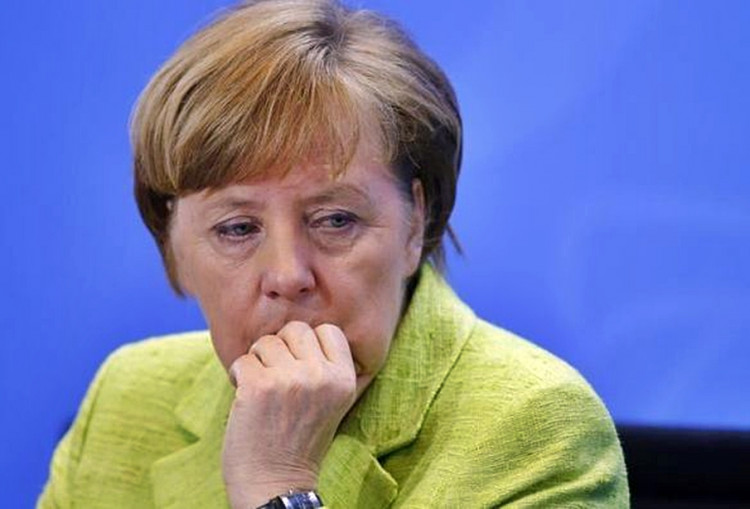German Chancellor Angela Merkel, whose hold on power since 2005 has earned her "titles" such as the "Queen of Europe" and the most powerful woman in the world, ad nauseam, is apparently on her last legs and might yield her chancellorship as early as December.
The stunning speed of her fall seemingly began Sept. 25 when erstwhile loyal members of her own party, the Christian Democratic Union (CDU), stabbed her in the back over what should have been an innocuous election of the party's parliamentary group leader. This vote, which is a formality, should have seen the election of Merkel's right-hand man, Volker Kauder.
Instead, her own MPs elected his challenger, Ralph Brinkhaus, in an unprecedented challenge to Merkel's authority, and a clear message from the party Merkel was falling out of favor. One senior CDU MP described the vote as an "uprising against Merkel" and Merkel has taken notice.
The very next day saw the media take up the fight, announcing Merkel's impending doom. Bild, Germany's biggest-selling newspaper, said it all in a huge headline: "Can Merkel still be Chancellor?"
Most German political analysts, however, expect the pugnacious Merkel to fight on, as did her mentor, former Chancellor Helmut Kohl.
But it is ominous that much of the talk in German political circles is who will succeed Merkel. Talk of succession will gather steam if the CDU loses or does badly in the upcoming key regional elections in Bavaria and Hesse in October.
Damaging losses for the CDU in Hesse, a conservative stronghold, at the hands of the anti-immigrant right-wingers might strengthen calls within the party for her to abandon her centrist approach and return to the party's conservative roots.
Another challenge to her CDU leadership, although highly unlikely, is the election of the CDU leader at a party conference in December. No one is challenging Merkel thus far, and the fear is that overthrowing her will lead to the elections the CDU might wind-up losing.
But the centrist Merkel might do the unexpected and announce her resignation, which appears a possibility given the revolt against her in her own party. If she does resign, the top contenders for her job are her personal favorite to succeed her, the centrist Annegret Kramp-Karrenbauer (called the "Mini-Merkel" by some) and Jens Spahn, the health minister and favorite of the CDU's right wing.
In the past few months, Merkel also saw her power wane after bruising battles over migrant policy against Horst Seehofer, the interior minister and leader of her Bavarian sister party, the Christian Social Union (CSU).






